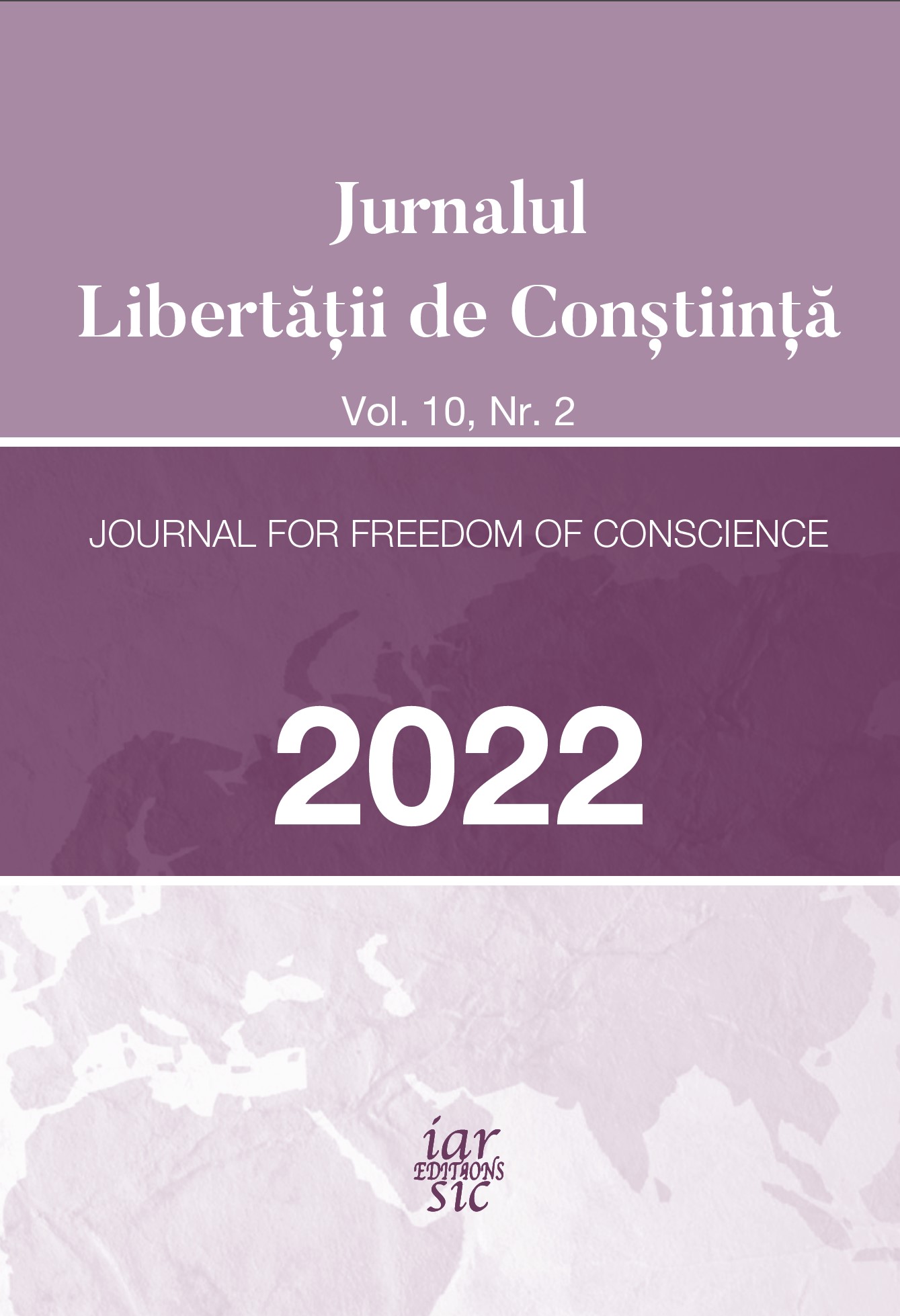VALORILE UMANE ȘI LIBERTATEA RELIGIOASĂ: O INTERPRETARE A CONCEPTULUI LIBERTĂȚII RELIGIOASE ÎN OGLINDA ISTORIEI CONFESIONALE TRANSILVĂNENE ȘI CENTRAL-EUROPENE
Human Values and Religious Freedom: An Interpretation of the Concept of Religious Freedom in the Mirror of Transylvanian and Central European Confessional History
Author(s): Botond Kund GudorSubject(s): History of Church(es), Human Rights and Humanitarian Law, Local History / Microhistory, Middle Ages, Recent History (1900 till today), Biblical studies
Published by: Editions IARSIC
Keywords: religious freedom; tolerance; common good; reason; council; human values;
Summary/Abstract: The coexistence of the Reformation and Roman Catholicism in Eastern Europe was not without conflict. As a result, the situation of the multiplication of confessions and their coexistence called for practical solutions to ensure religious freedom. Today, the subject of religious freedom has taken on global importance, as scientific studies indicate an increase in religious persecution worldwide. There are at least five aspects of religious freedom: the legal or juridical, the individual or pastoral, the communal, the interfaith or ecumenical and, finally, the interreligious. The decision of the Diet of Turda (1568) laid down an ethical concept that had been almost confiscated by the end of the 20th century, namely religious freedom. The human values involved in the realization of this desideratum were not regarded as absolute, but were subsumed by momentary political interests. The pressure of the tragic Western European counter-reformation events put Transylvanian legislation in a positive light, where human values, enshrined in a biblical perspective, proved to be the bond of social tranquility. The horror of inter-religious fratricidal wars shaped legislation related to religious freedom. One of the first steps in this direction was the Peace of Vienna (13 December 1606), shaped by the earlier Transylvanian experience, by Prince Stefan Bocskai, later by the Jansenist Francisc Rákóczi II, or the Transylvanian Count Nicolae Bethlen. Similar interpretations were only possible by anchoring human values in the assumed biblical message. Human values and the theories of their origin have undergone a long process of secularization. One can observe a progressive secularization of terms related to human values, the most valuable of which became the rationale of the 1781 Edict of Toleration of the Habsburg Emperor Joseph II (1741-1790). These values could be useful to the extent that they could be harnessed for the common good. The American Declaration of Independence and the dawn of the French Revolution proclaimed freedom of religion and freedom of conscience. Religious freedom has preoccupied the Christian world intensively. Roman Catholics were concerned with defining the term at the Second Vatican Council, Orthodox, Reformed and later Lutherans had similar relevant approaches. The Transylvanian experience may be a model that can be implemented and through which Eastern Europe has certainly influenced the global evolution of the religious freedom debate.
Journal: Jurnalul Libertății de Conștiință
- Issue Year: 10/2022
- Issue No: 2
- Page Range: 142-167
- Page Count: 26
- Language: Romanian

